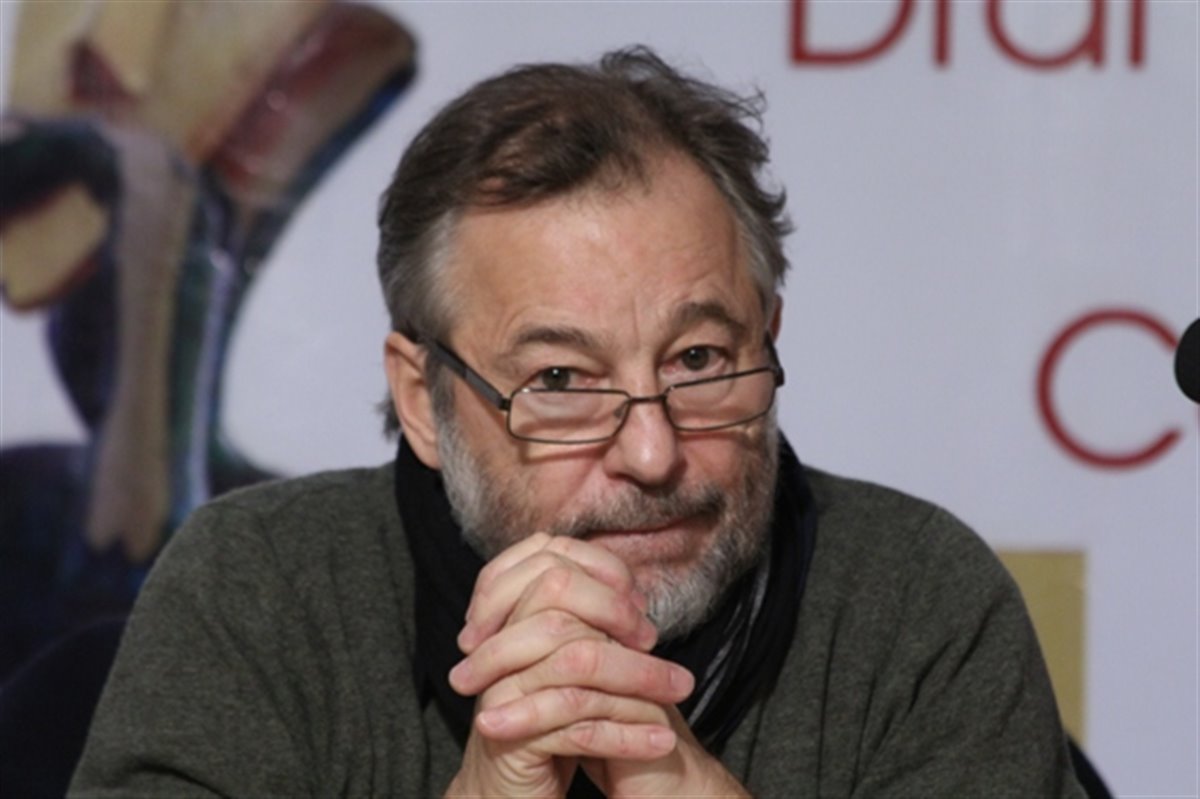Relationship between Iranian and Polish theaters will be continued
01Jan2014

I will produce a film in Iran
The press meeting of Wlodzimierz Staniewski, the polish well-known director who traveled Iran through the invitation by Av Theater Group has been held in the conference hall of Shahr Theater Hall (Tehran City Theater).
According to the Public Relations of Av Theater Group, at the press meeting Farindokht Zahedi, a theater educator and Babak Mohri, the director of Av Theater Group have attended along with Staniewski.
Initially, Babak Mohri, the director and manager of Av Theater Group said while addressing his friendship background with Staniewski and the Gardzienice Theater Group: “About 10 years ago, Farindokht Zahedi has introduced 10 Iranian directors and stage players for a theater tour to the Polish Theater Academy; among of whom I was also on the list. We traveled Poland which provided me an opportunity to meet Staniewski.”
Mohri considered Staniewski as the theater label of the 21st century and added: “We will stage a joint theater project with Mr. Staniewski and his theater group, first stage of which was the performance of “Gilgamesh” play in Gardzienice. Its second stage is to invite Staniewski for participation in the Fadjr International Theater Festival held in Iran.”
He explained about the third and fourth stages of the project: “At the third stage, we will participate in a theater festival held in Poland, and finally, it is expected that a film will be produced at the end of this joint project.”
Later, Farindokht Zahedi, a theater educator, said: “Iranian theater has nothing less than the world theater, as I found after participation in various national and international festivals and watching different performances. However, with the presence of artists like Staniewski, whose novel and distinctive techniques, styles and methods have been excelled at the theater of the 21st century, these figures are introduced to our theater community.”
She continued: “The attendance of them could be considered as great success for us, as we could introduce our culture and art to the global community. According to Pari Saberi, we could raise Iran’s flag with arts, and communicate with the global community via intellectual, cultural and artistic interactions.”
Ms. Zahedi also addressed how she met the polish theater, and said: “Ten years ago, Mr. Atiaei assigned me as the representative after an invitation by Mr. Machinovak, the chairman of Polish Governmental Institute for visiting the Polish theater. During a two-week tour, I found an opportunity to meet closely the Polish theater, and also meet one of the most notable people of the Polish theater, Mr. Staniewski.”
She also expected that the books by Staniewski which are translated in Iran will be soon launched the market.
Next, Wlodzimierz Staniewski said at the press meeting: “I don’t want to exaggerate about myself, or look down on my abilities and skills. Our theater has faced many highlighted figures during ?? and ?? that you certainly know them well.”
Staniewski added: “The father of Polish practical theater is Sterova who was died in 1948, followed by Grotowski and Kantor.”
He continued: “We want to think of ourselves as Napoleon and are able to change the world. As the result, we would become self-driven.”
He also addressed the participation of Grotowski in the Shiraz Arts Festival: “At that time, one of the domestic magazines wrote about him that Kantor is his student, while Kantor was ten years older than Grotowski. Consequently, their relation of master and student was reverse.”
Staniewski reminded the dual behavior of time: “Necessarily, history shouldn’t have a beginning and ending. It is true that history flows from a beginning through an ending, but there are occasions where it is narrated from the ending. I guess that now I am the teacher of Grotowski and Kantor.”
Later, this theater director explained about his own style: “We in fact perform an environmental or ecological theater, means that its environment is a world itself where surrounds us. I don’t mean environment and nature conservation.”
He continued: “The artist’s spirit is associated with the universe; as we see in the Zar religious custom held in Southern Iran. However, such that association couldn’t be achieved just by meditation and stillness, but it is a dynamic motion which leads the whole body to move.”
Staniewski added: “If one asks me what are you doing here? I would answer that I am creating vitality. There is a demand-supply rule among the humans for energy and vitality exchange which is possible on any level.”
At the end, the director announced that a film will be produced based on Iphigenia in Iran next year.
According to him, the relationship between Iranian and Polish theaters will be continued.
The play “Pythian Oratorio” directed by Wlodzimierz Staniewski will be performed at Thursday, Friday and Saturday (January 23rd, 24th, and 25th) in Vahdat Hall, Tehran.
Additionally, Staniewski will hold a “Body Music” workshop in Iran, and also participate in the “Staniewski’s Theater” seminar held in the Shahr Theater Hall.